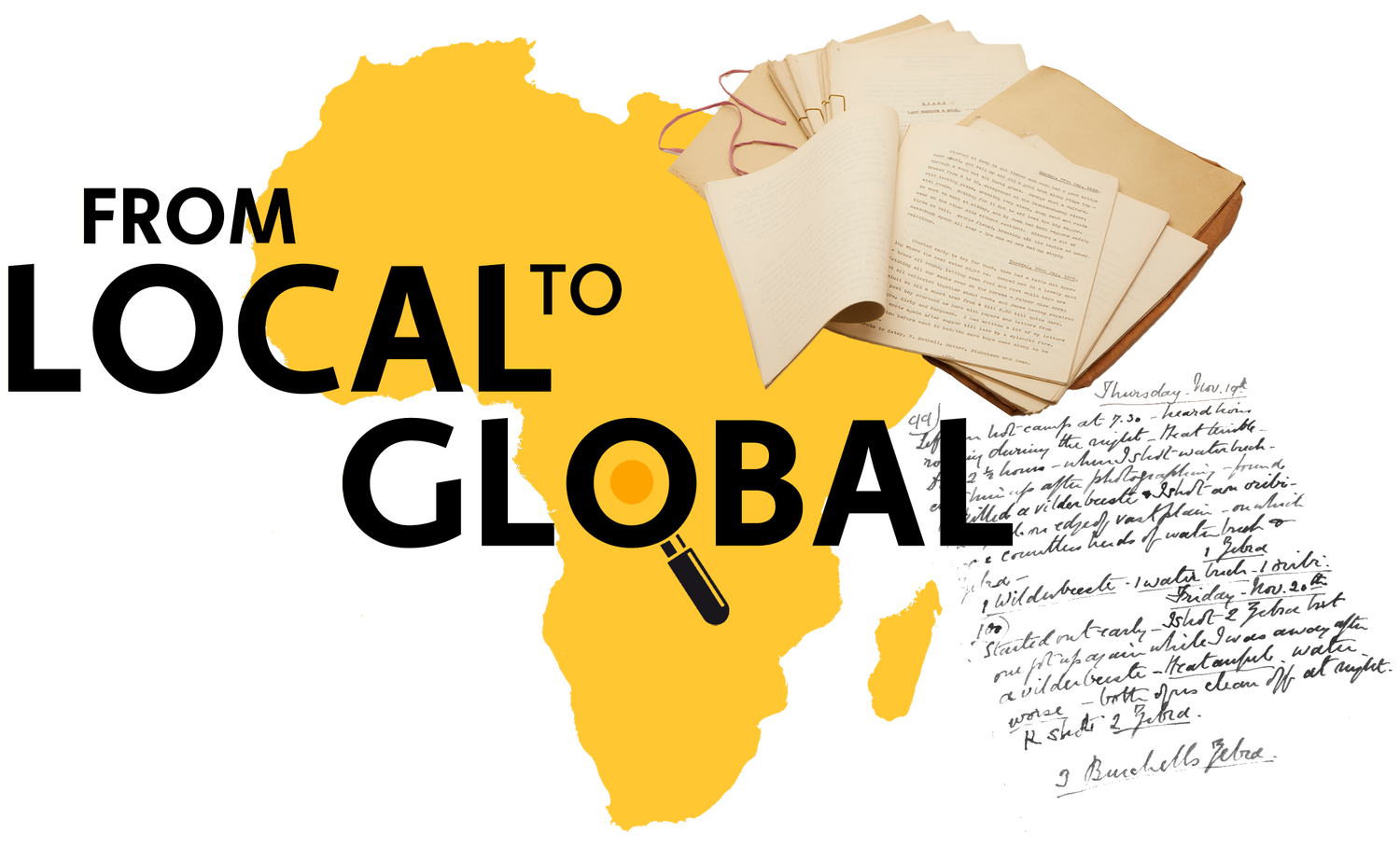
Tackling our colonial past - the role of museums
By Sheila McGregor
Museums exude an aura of completeness and authority. But anyone who works behind the scenes is only too aware that they are full of gaps. There are many things we don’t know. And the knowledge museum curators and educators have – or think they have – is inevitably filtered through the lens of their own experience and assumptions.
Museums are also full of artefacts, records, natural history specimens and other material that belong to cultures and places elsewhere in the world. Often these were collected or looted as Britain extended its colonial power.
Diaries belonging to J J Harrison © Scarborough Museums and Galleries
How we display and talk about these collections requires serious reappraisal if we are to avoid repeating and reinforcing the injustices of the past. That’s why library and museum staff involved with From Local to Global have embarked on a programme of reading and discussion around what has come to be known as ‘decolonisation’. Members of the team meet every fortnight online to discuss readings that have been suggested to us by Sam Allen of Creative Arts Social Consultancy and also offer up other material they have encountered in the course of their work on the project. Debates sometimes stay focused on the reading material at hand, but sometimes take us in other directions as we grapple with the complexities of our colonial past.
First on our ‘crit group’ reading list was an essay by the eminent cultural theorist Stuart Hall entitled Whose heritage? Un-settling ‘The Heritage’. Written as the keynote speech for a national conference in 1999, it is a hard-hitting critique of how museums and heritage organisations have perpetuated a fixed and Eurocentric view of Britain’s colonial past.
Hall asks who heritage is for, arguing that in Britain the answer is clear. It is for those who ‘belong’. He castigates museums and heritage organisations for sustaining a narrative of Empire that reflects the coloniser and neglects the experience of those who have been colonised. But, says Hall, this bias is slowly, tentatively being challenged. There is “a deep slow-motion revolution in progress in the practices of cultural representation.”
Since Hall first wrote his essay in 1999, how much has changed? According to professional bodies such as the Museums Association, not enough. Also on our reading list are a recent set of principles and guidelines from the Museums Association aimed at helping museums challenge the idea of ‘neutrality’ and build equitable relationships with those who are under-represented or misrepresented.
Photo albums © Scarborough Museums and Galleries
Many within the profession are taking action for themselves. The Curatorial Research Centre, an independent consultancy, has produced ten self-help tips which encourage museums to reassess their founding mission, dig deep into their collections and start new conversations without delay.
In another piece on our reading list Dr Errol Francis, director of the arts charity Culture&, reflects on the tumultuous aftermath of the Black Lives Matter protests in 2020, which saw the toppling of Edward Colston’s statue in Bristol and a renewed focus on the status of objects looted by the British during brutal military conquest, most famously the Benin bronzes.
He urges museums to go beyond lofty statements of solidarity by making their workforce more representative and engaging with the ethics and practicalities of restitution and repatriation (i.e. returning objects to their community and place of origin). “We are living through an exciting renaissance of culture and heritage and those who think they can turn back the clock on the scholarship, inquiry and passion that inspired the Black Lives Matter movement are simply on the wrong side of history.”
The power of language to camouflage and exclude is a thread that unites all the reading material on our list. Sam Allen of Creative Arts Social Consultancy cautions against the use of buzzwords like ‘diversity’ to signal enlightenment and lazy acronyms such as BAME to denote anyone and everyone who isn’t white.
Our reading so far has, we hope, deepened thinking around the difficult subject-matter of From Local to Global. It’s a work in progress. But then so is history. And so, most definitely, are museums.
About the author
Sheila McGregor - is a freelance curator and evaluation consultant for From Local to Global
References
Museum Association principles
Museum Association guidelines
Curatorial Research Centre ten self-help tips
Dr Erroll Francis piece on our reading list

